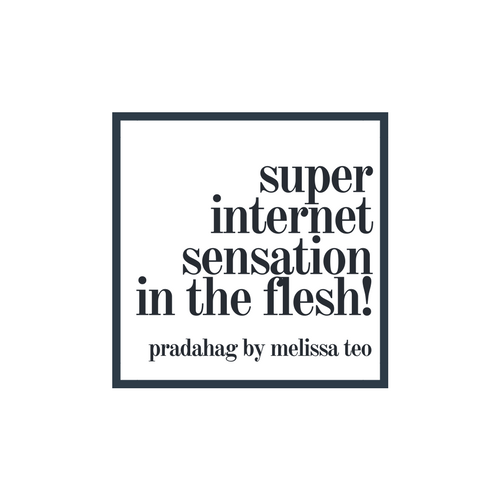There is an indescribably pleasant numbness that washes over me every time I finish my courses: a certain oh God I must be a masochist because I kind of enjoyed how rough that was, or an inkling of I might miss this intolerable (insatiable?) suffering during the summer.
My final essay of my third year in Academia was handed in about 24 hours ago. If you’re curious, it was titled, “I Purchased Fairness and Happiness at Starbucks for $4.25“, which I am quite satisfied with. But I feel a certain void forming again – how shall I keep my brain busy this summer especially when I’ve got no school for the first time in three years?
Whatever the feeling may be, I think I can safely say for myself that my degree is starting to mean more and more to me the longer I persist through my education – mostly, in part, because I find more and more connections between my formal education and the things that interest me outside of school – which is why I always miss being in school despite loathing how stressed it makes me feel.
At the top of my blog (which may change soon – read this post to find out why) is a small About section that talks about who I am and what I like talking about, and if you’ve followed this blog for a while, then congratulations! You’ll know that I am a very bland and boring person with no original interests whatsoever.
However, if you’re new to this blog, new to me, or new to my writing, or rediscovering the things I just listed, you’ll come to learn that what I’m studying often garners a few popular responses:
- “Oh! That’s interesting!” (read: I have no idea what that is, nor why it matters, and I don’t care about it enough to ask you to explain it to me),
- “Cool!” (read: Why aren’t you in Sciences or Engineering?), and
- “English and Philosophy? What are you going to do with that degree?” (read as is, intonation and all)
Firstly, why do people question what I’m going to do with my degree? What will you do with your life? What are you going to do about your hair? What about your cooking skills? It isn’t very nice to ask such existential questions to people who are unprepared to tackle such heavy topics.
Secondly, what do you think of when you think of an English Literature/Language & Philosophy student? Do you think of liberal communist swine? Do you think of a librarian? Do you think of the coalescence of disappointment that everybody has ever felt in the entire world represented in a single human being?
You’re probably not wrong, but unfortunately you aren’t right either (sorry, I know people love being right – I would know, because I’m always right). My degree, I’ve learned, is not simply a degree that wraps dead white poets, grammar rules, and Socrates under the same belt, which are the most annoying parts of the degree I’m pursuing, and you can fight me on this. Rather, my degree has gotten me to consider the following:
- How semantic analysis can help understand systemic racism
- The rhetorical unification tactics used in divisive hate speech
- Forms of story-telling in diaspora literature
- How happiness as a social construct is used to suppress marginalized people
- How history, philosophy, and literature are inextricably linked
- How our values are merely reflections of the economic system under which we operate
- Understanding transcultural existence and how it manifests itself in society
- How common figurative language is in every day discourse
- and so on…
If you haven’t closed this page yet, thanks! If you decided to skip that daunting list, you saved yourself from about a minute of reading – pat yourself on the back. If you read it and didn’t understand it, it’s okay – I only really understood them three weeks ago when I was applying to run a Student Directed Seminar with a colleague.
What I’m trying to say is that for the first time in a long time, my education feels applicable, not just theoretical. And yeah, people might say, “Your degree will never get you a real job!“, to which I respond, “You’re just brainwashed by capitalism! The real goal in life is not to work, but to partake in leisure!” Thanx, Marx (ha ha).
Learning is something that will always persist, and I’m very thankful (and privileged!) to be able to receive a higher education at a fraction of the cost that most people in the world will receive it for, but learning never has to be seen in conjunction to higher education.
If there’s one thing I’ve learned this year that can’t really be taught in a formal setting, it’s that empathy and understanding are two very difficult things to put into practice. Over the course of the year we’ve witnessed some pretty awful things occur around the globe, and while anger is a very valid reaction, empathy is often pulled into the undertow of the division between people – not absent, but also not as resonant, of course. This is not an apology for Nazi-punching or Mother-of-all-Bombs-dropping, obviously, but we often ask ourselves, “How can I help?” without knowing if we’ll ever answer the question we pose.
The problem, I think, is that most of us – myself included – love humanity. In fact, we love humanity so much that when anything horrific happens, we end up hating individual people, and with that mindset we can never really love humanity because individual people are part of humanity.
Then it becomes very easy to blame individual people for the downfall of humanity when really, are we not all responsible for each other? This is a hard concept for some people to grasp, so if you feel your blood boiling at the mention of shared responsibility (or universal healthcare, or social housing, etc.) don’t worry! Most people are also individualistic to a fault; Dostoevsky and Sartre explained it best. My point is that we forget that empathy does not have to exist in the form of grandiose gestures and donations, but rather, taking the time to reach out to your community and instil an attitude of caring, and bettering yourself so that you can, in turn, help promote the same kind of betterment in society.
Question things that don’t make sense, take time to read, and always, always listen. There is so much out there happening that can’t be taught to you through a textbook, and that, I think, helps alleviate the numbness that I talked about at the beginning of this post: you are never done learning, which sounds scary, but the idea gets better when you realize most of your life-learning is free (read: free from the chains of capitalism, thank God).










